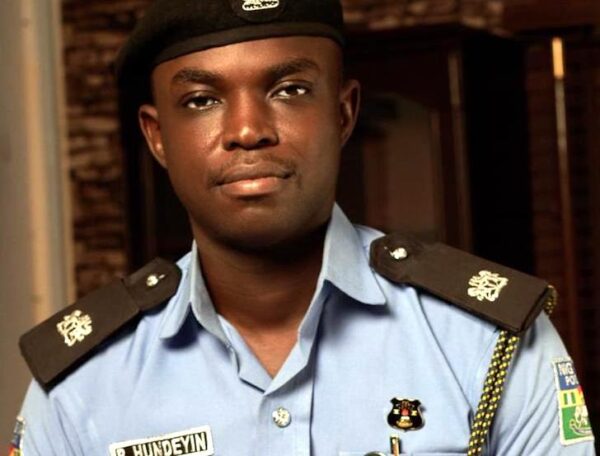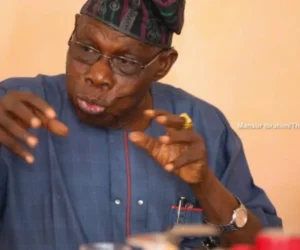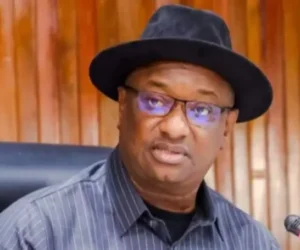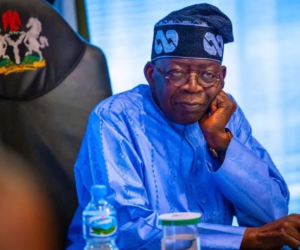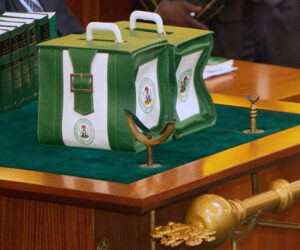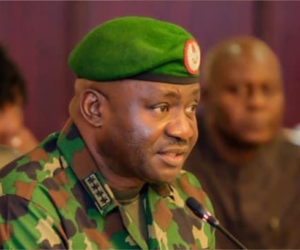The Nigeria Police Force has cautioned all groups planning protests in Abuja to strictly comply with a court order restricting demonstrations in key parts of the Federal Capital Territory (FCT).
This came amid calls for protests by activists and members of pro-Biafra groups planning demonstrations on 20 October to demand the release of the detained Separatist leader of the Indigenous People of Biafra (IPOB), Nnamdi Kanu.
Mr Kanu is standing trial for treason, and the government accuses him and his group, IPOB, of killing and kidnapping hundreds of people in south-east Nigeria. Mr Kanu, who is advocating for an independent state of Biafra for Igbos, had in the past publicly called on IPOB members to carry out attacks on government facilities and kill people who disagree with him. However, he has pleaded not guilty to the charges filed by the government.
Organisers of the protest to demand Mr Kanu’s release, led by activist Omoyele Sowore, said it would be peaceful, but there are concerns within government circles over possible disruptions to public order in the Nigerian capital.
PREMIUM TIMES reported that a federal court in Abuja on Friday approved the protest but told demonstrators not to go to some government buildings, including the Presidential Villa and the National Assembly complex.
While the police maintained that the court’s directive was meant to prevent a breakdown of law and order, critics have expressed concern that the measure could limit citizens’ freedom of assembly and expression.
The police’s stance
The police said they would obey the court order and allow the protest to hold, but warned that anyone found violating the order or attempting to hijack protests for violent purposes would face severe legal consequences.
In a statement issued on Saturday by police spokesperson Benjamin Hundeyin, the police reaffirmed their commitment to upholding the rule of law and protecting citizens’ rights in accordance with constitutional provisions.
The Court Order
On Friday, at the Federal High Court, Abuja Division, Justice M.G. Umar gave the order in Suit No. FHC/ABJ/CS/2202/2025 — Federal Republic of Nigeria v. Omoyele Sowore & 4 others.
The order restrains Mr Sowore and other respondents, as well as any groups acting under their instruction, from staging protests within and around Aso Rock Villa, the National Assembly Complex, Force Headquarters, the Court of Appeal, Eagle Square, and Shehu Shagari Way.
While acknowledging the right of citizens to peaceful assembly and expression, the police emphasised that such rights must be exercised responsibly and within the limits of the law, especially where national security and public safety are concerned.
“The court’s intervention serves as a safeguard, not a suppression of constitutional freedoms,” the statement said, urging all groups, including those agitating for or against the release of Nnamdi Kanu, to respect the directive pending further judicial proceedings.
The Inspector-General of Police (IGP), Kayode Egbetokun, has directed the FCT Commissioner of Police and relevant commands to ensure strict enforcement of the order, according to the statement.
Security operatives have been instructed to maintain visible and strategic deployments around sensitive locations to ensure peace, free movement, and protection of lives and property.
The police warned that any person or group “that uses protests as cover to incite violence, carry or use offensive weapons, vandalise public or private property, kidnap or engage in acts likely to cause loss of life or serious injury will be dealt with decisively.”
“Offenders will be arrested, subjected to full investigation, and prosecuted under relevant criminal laws — including laws relating to public order, violent conduct and terrorism where applicable,” the police added, noting those who “incite others via social media or other platforms should note that digital evidence will be used in investigations and prosecutions.”
Tension
The police have assured residents of adequate security arrangements and urged “law-abiding Nigerians to go about their normal activities without fear.”
But there is tension as local and international observers warned of possible disruptions of law and order.
The US Embassy in Abuja feared that there might be roadblocks, traffic congestion, and confrontations between police and protestors that could turn violent.
READ ALSO: Police pledge to obey court order on #FreeNnamdiKanu protest
“The Embassy advises all U.S. citizens to avoid this area and to severely limit all movement throughout the city on Monday, October 20th,” it wrote in a security alert. “The Embassy recommends children in Abuja stay home from school and domestic staff that travel from outside of Abuja to stay home as well.”
Similarly, the National Youth Council of Nigeria (NYCN) warned Nigerian youths to “stay out of trouble” and not to participate in the protest.

